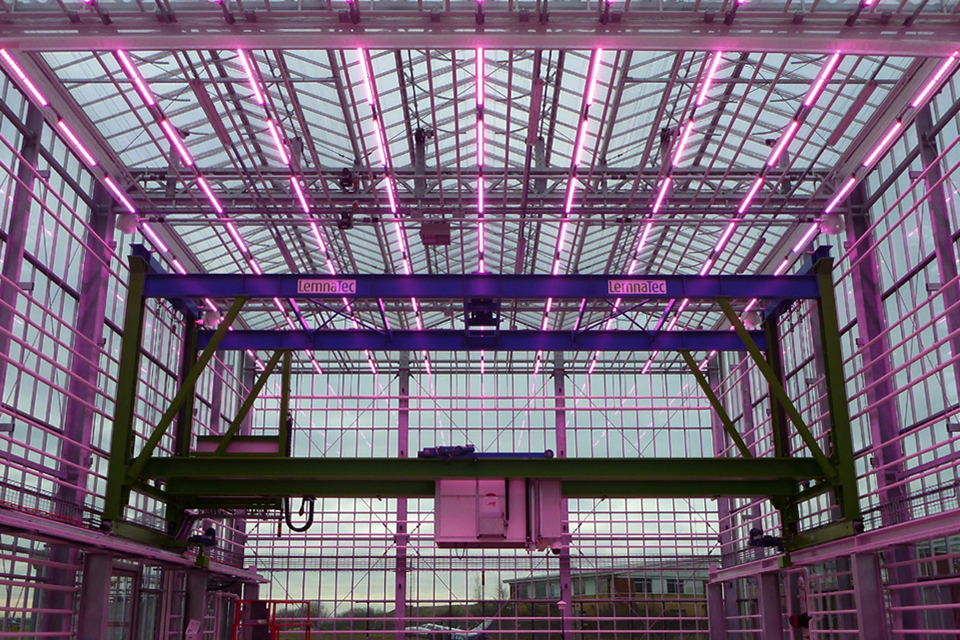Science and Innovation Network USA promotes UK-US collaboration in precision agriculture
Science and Innovation Network USA’s work has formed connections between leading British and American research institutions, and inspired plans for student exchanges, joint funding applications, and research collaborations.
Documents
Details
New agricultural technology is transforming food production around the world, and the UK Science & Innovation Network (SIN) is working with cutting-edge British research partners like the Agricultural Engineering Precision Innovation Centre (Agri-EPI Centre) to highlight UK excellence in precision agriculture to American scientists, investors, and government officials.

Cranfield is home to the Plant Phenotyping and Soil Health Facility. Photo credit: AgriEPI Centre and CHaP
As one of four centres for agri-tech innovation established by the government in 2016, the Agri-EPI Centre conducts research, development, demonstration and training on precision agriculture. In April 2018, SIN USA hosted a delegation from the Centre, arranging meetings in Washington D.C., UC Davis, and “America’s Salad Bowl” in the Salinas Valley to discuss how international partnerships can bring transformative technologies to farms around the globe. The delegation spoke with industry and academic leaders about challenges facing precision agriculture technology, and capped off their visit with a roundtable discussion involving leading academics hosted by the British Consulate in San Francisco.
The strengths of American agricultural universities make them natural partners for Agri-EPI members like Cranfield University. Professor Leon A. Terry of Cranfield University credits SIN with opening doors for the Agri-EPI Centre and its members in the US.
We wouldn’t have corralled all the right players in one place without UK government involvement,” he said. “[SIN]’s effort shows that the government is supportive, and has given us confidence in the potential growth for our research in the US.
He worked quickly to keep the momentum up from the visit, and set to work identifying opportunities for collaboration. After a year of virtual communication between California and the UK, Prof Terry returned to the Bay Area in 2019 to cement partnerships that stemmed from the 2018 initial meetings.
Prof. Terry is working on bids to joint funding mechanisms from UK Research & Innovation and the US National Science Foundation, enabling Cranfield to collaborate with US partners introduced through SIN using the recently announced ‘Signals in the Soil’ bilateral research programme. In addition, he is working with Colorado State University and UC Davis to find ways to capitalize on the Memoranda of Understanding signed with each institution, and is organizing staff and student exchanges with others including University of Arizona and Lawrence Berkeley National Laboratory.
Academic institutions can find it difficult to look beyond traditional research partners, but SIN’s ties to the FCO and BEIS can lend confidence and credibility to UK researchers building international partnerships, enabling them to find opportunities around the world. Cranfield University’s collaborations illustrate how valuable those resources can be to an institution intent on increasing its global reach and connections. “In the scientific community, change is challenging”, Prof Terry said “But we need to embrace it.”
Contact: Hannah Davelman [email protected]